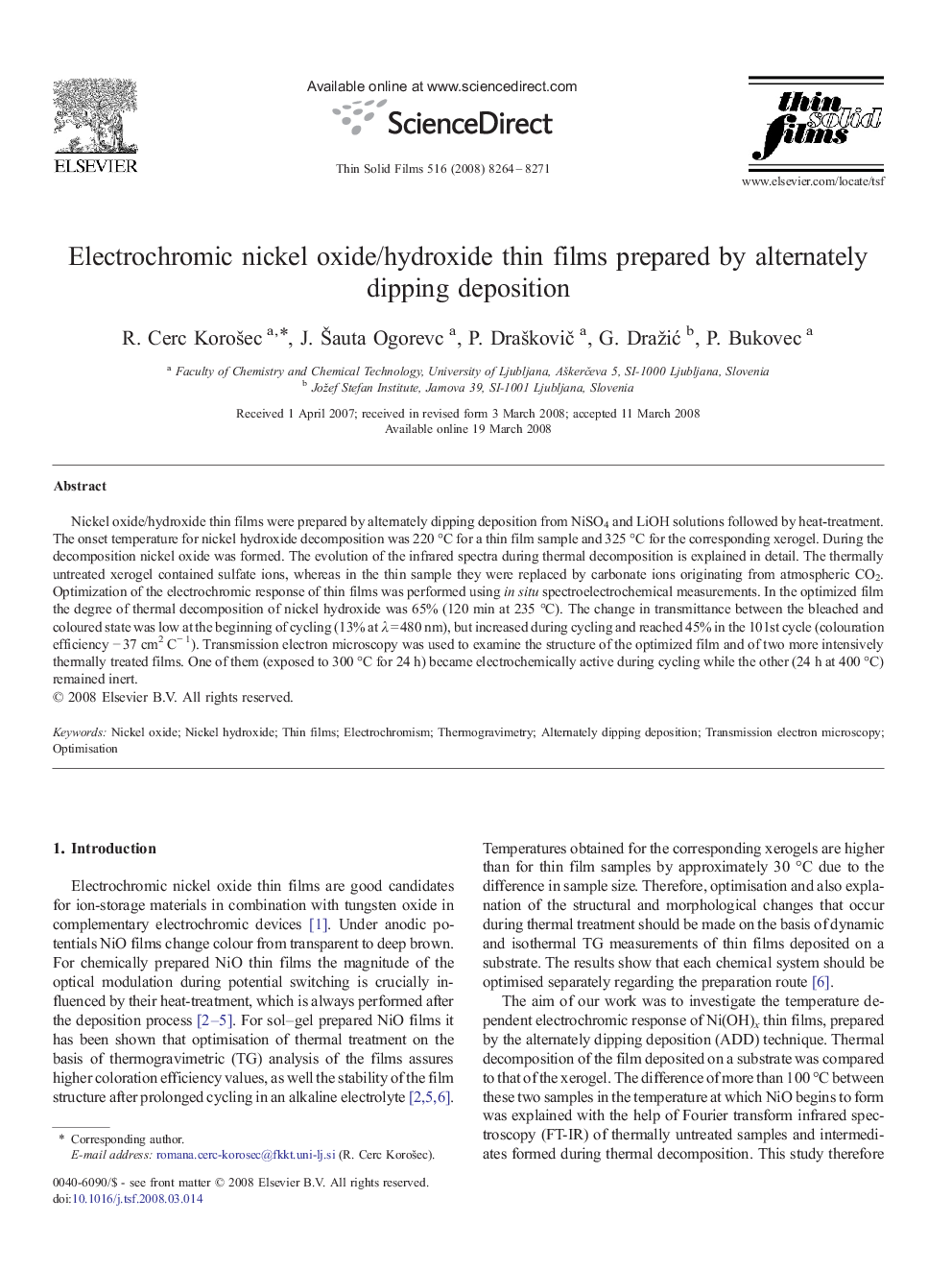| کد مقاله | کد نشریه | سال انتشار | مقاله انگلیسی | نسخه تمام متن |
|---|---|---|---|---|
| 1672032 | 1008928 | 2008 | 8 صفحه PDF | دانلود رایگان |

Nickel oxide/hydroxide thin films were prepared by alternately dipping deposition from NiSO4 and LiOH solutions followed by heat-treatment. The onset temperature for nickel hydroxide decomposition was 220 °C for a thin film sample and 325 °C for the corresponding xerogel. During the decomposition nickel oxide was formed. The evolution of the infrared spectra during thermal decomposition is explained in detail. The thermally untreated xerogel contained sulfate ions, whereas in the thin sample they were replaced by carbonate ions originating from atmospheric CO2. Optimization of the electrochromic response of thin films was performed using in situ spectroelectrochemical measurements. In the optimized film the degree of thermal decomposition of nickel hydroxide was 65% (120 min at 235 °C). The change in transmittance between the bleached and coloured state was low at the beginning of cycling (13% at λ = 480 nm), but increased during cycling and reached 45% in the 101st cycle (colouration efficiency − 37 cm2 C− 1). Transmission electron microscopy was used to examine the structure of the optimized film and of two more intensively thermally treated films. One of them (exposed to 300 °C for 24 h) became electrochemically active during cycling while the other (24 h at 400 °C) remained inert.
Journal: Thin Solid Films - Volume 516, Issue 23, 1 October 2008, Pages 8264–8271